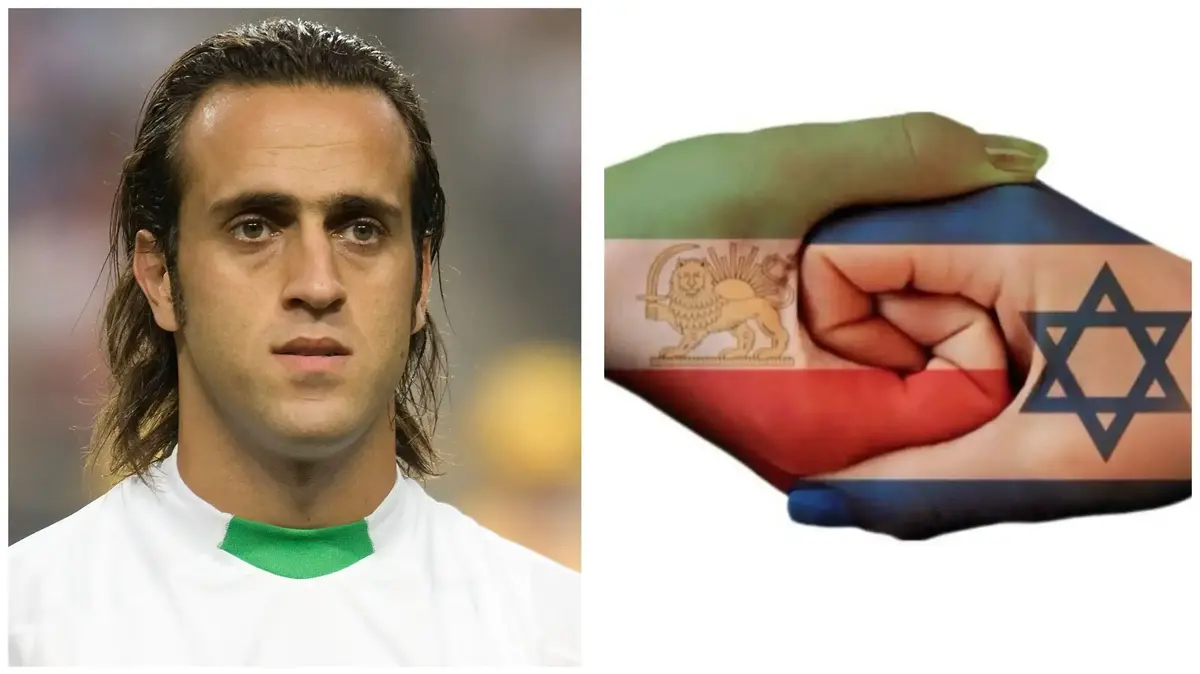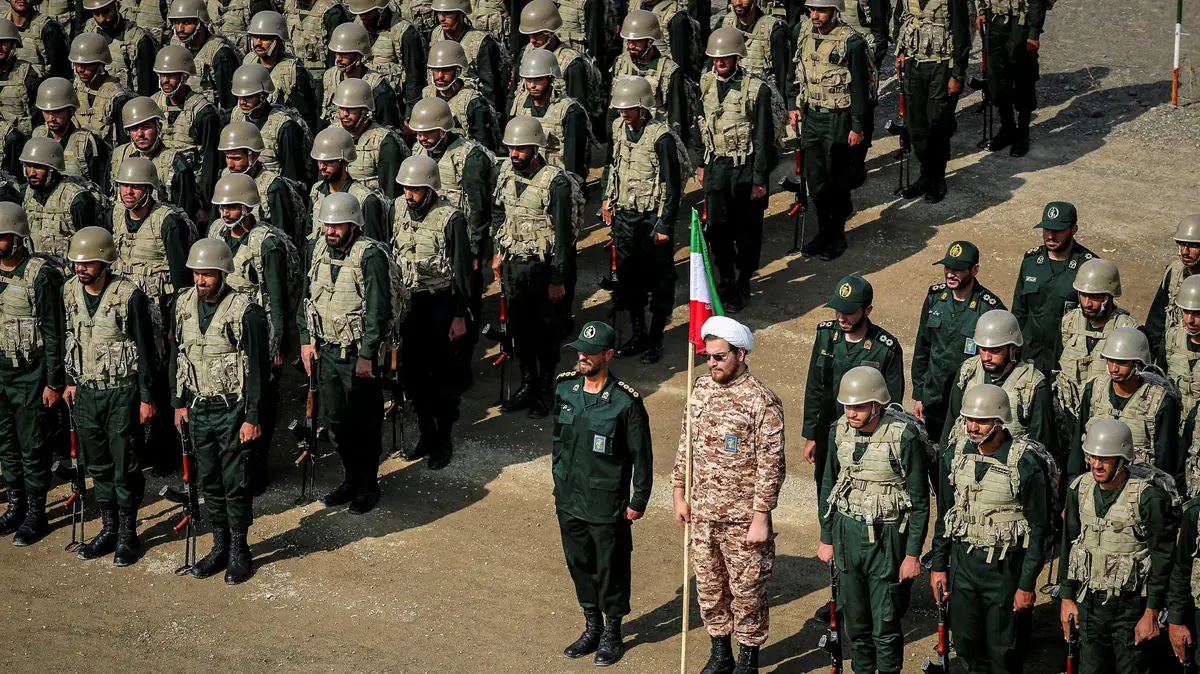Tehran Rabbi Yehuda Grammy's visit to Suleimani has re-told the story of the Jewish community of about 8,000 • Now, with Suleymani death, fear of revenge arises • "If there is a war between Iran and the US, they will be the first to become hostages"
"Separating Judaism from Zionism to Prevent Harassment." Jews praying in a synagogue in Tehran
Photo:
AFP
The first thing the Tehran Jews did last Friday morning, after hearing in amazement at the assassination of Kassem Suleimani, was to send a harsh condemnation of the act. "The name will rise in blood," the message reads, a nickname that is usually mentioned only in Jewish contexts.
Earlier this week, they arrived at the Iranian general's house to comfort the family and attend the funeral. Among those in attendance was the Chief Rabbi of Tehran, Rabbi Yehuda Grammy, who even interviewed the state television channel and condemned the elimination. One can only assume how much concern there is among the community members that the heavy rage will be directed to them.
Iranian Jewry is one of the oldest Jewish communities in the world, and traditionally reached it in exile after the destruction of the First Temple. Before the Iranian revolution in 1979, some 80,000 Jews lived in the country, but after the Ayatollah takeover, the vast majority left the dictatorial state for the benefit of Israel and the United States. Today, an estimated 8,000 Jews live in Iran, the vast majority in the country's major cities. Shiraz and Tehran, the largest Jewish community in the Arab countries.
"In terms of religion, they have more or less freedom because Muslims cannot abolish Judaism, which is mentioned in the Qur'an. Therefore, they can keep the holidays and kosher and visit the synagogues," explains Rani Amrani, director of Radio Ran in Persian, himself an Iranian veteran who runs Today, close relations with residents of the country, both Jews and non-Jews alike.
He explains that one of the significant ways to keep quiet with the government and to allow Jewish existence to continue is simple - to renounce Zionism altogether. "They are trying to separate Judaism from Zionism to prevent harassment."
Also in a dangerous wetsap
Every few years, rare documentation is published of Jewish activity in the country, especially around the holidays. Thus, during the last Sukkot holiday, Ariel Gold, a Jewish activist in the BDS organization "Pink Code", documented the prayers and taking of the four species on the last Sukkot holiday. Of course, the tour was done with the approval and accompaniment of the Iranian regime.
Grammy (second from the bottom left) at Suleimani // Photo: Courtesy of Radio Ran
The goal - proof that they are not against Judaism but only against Zionism. In Rabbi Grammy's Facebook account, you can also see the recent prayers, in which Maoz Tzur served in the last Chanukah - in Hebrew and in Persian. Interesting Trivia Detail - Rabbi Grammy previously attended the Candle of Israel meeting in Baltimore, the same session attended by Avi Berkowitz, President Donald Trump's Special Envoy for the Middle East.
Amrani says that he had previously made contact with Jews in the state through the wetsap, but any such connection posed an unequivocal risk. "They are very worried because they can easily be accused of spying on Israel. I have regular listeners and every synagogue knows my radio, but their situation is very sensitive. If a Muslim speaks to Israel it is a problem, if Jews speak they will be suspected of spying. We talk less about them, so it won't be a matter of getting them into something. It's really life-threatening. "
Radio Ran is the only Israeli radio in the Persian language today, and many of Iranian residents and residents alike hear it, catching up on a situation in the world without the strain of the extreme regime.
In fact, in the past, there were Jews who even came to Israel by road, mainly to participate in the joys of their families in the country. However, this is a risk. "If a Jew is caught when he arrives in Israel, his sentence will be five years in prison. I know Iranian Jews who came and returned, but two of them were caught and sent to prison for a long time."
Rani Amrani, Radio Ran in Persian. "Jews in Iran are too rich or too poor" // Photo: Miriam Zahi
The situation is now even more sensitive. Suleimani's assassination scrapped the cards and sharpened Iran's resistance to the US, and so did Israel. They will also accuse the Jews of being targeted and harassment. "If the Jews killed Suleimani," they would say, "we will kill the Jews here." That is why the Jewish community rushed to issue a message of sorrow over Suleimani's death and her friends came to comfort. I would do that instead. "
"The state does not help"
Attempts to talk to Jews in Iran for the benefit of this article were upset, and new immigrants from the country also refused to speak, apparently out of concern for their relatives. Amrani says he has also spoken to residents in the country who support the regime, and has seen a significant increase in anti-Semitic claims.
"They say the Jews have eliminated Suleimani. There are some who even threaten 'we will become Jews like this,'" he says. "In my opinion, the Jews in Iran live on explosives that can explode at any moment. They are in immense danger," Amrani warns. "If there is a war between Iran and Israel or the US, they will be the first to become hostages and lose everything they have. This is how it happened after the Iranian revolution - all the wealthy Jews were hanged and killed to foreclose on their property, and it can certainly happen now. "
Despite the risk, the Jews in Iran are in no hurry to flee the country, as sanctions have some causes. The low value of money in Iran means that the richest person in the country is equivalent to the person with an average salary in Israel and below. There are two reasons Jews remain in Iran - either too rich or too poor. The Iranian money is so low that if a person owns two houses there, he will have no money to buy a room here. The rich make a simple account - where they live like kings and here they will live like an average person at best. Why do they do it? At the same time, the poor will have trouble starting over in Israel at age 40 or 50. The state is not helping Iranian Jews like it used to. A person who comes to Israel can do nothing with the money he receives as an absorption basket.
"I spoke to my family members and asked what they were doing in this country, to be rebuilt and to immigrate to Israel. Their response was, 'I have a home and a business here, and if I sell them I can't buy a room in Israel.' They have no choice, they stay there."









/cloudfront-eu-central-1.images.arcpublishing.com/prisa/VGTRLOM77NUMO33M7L4E3PJN2I.jpg)